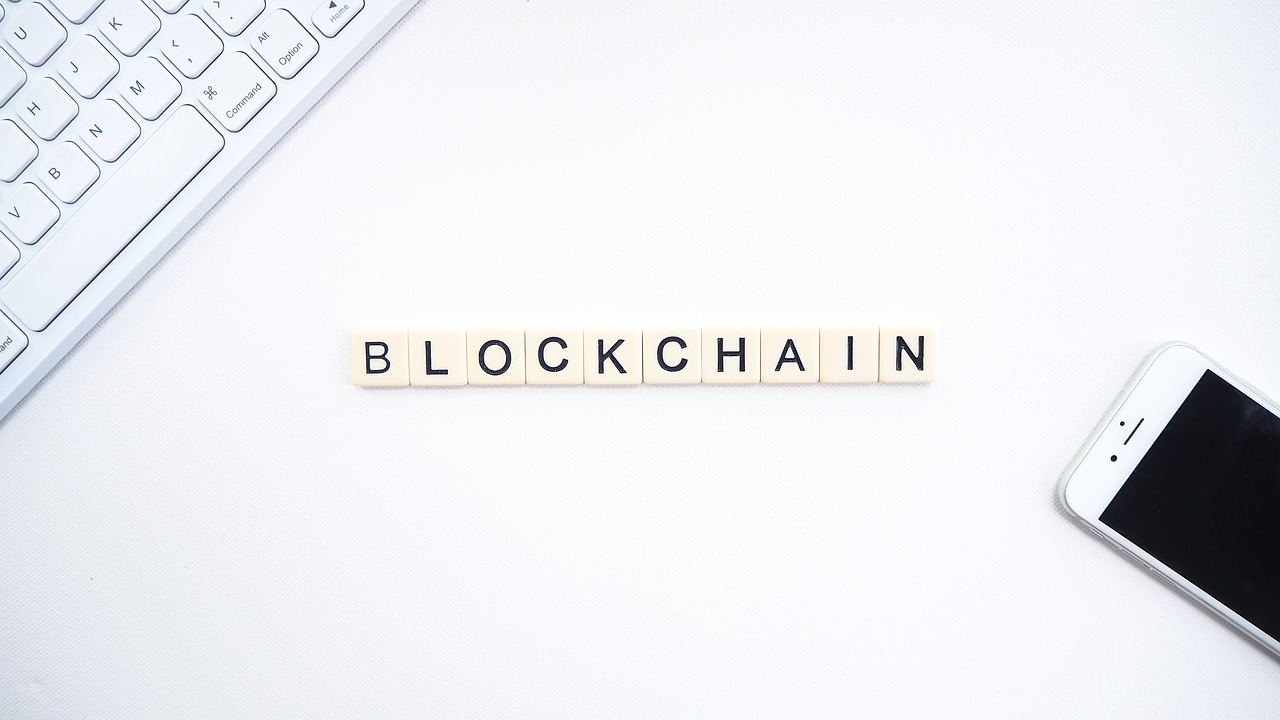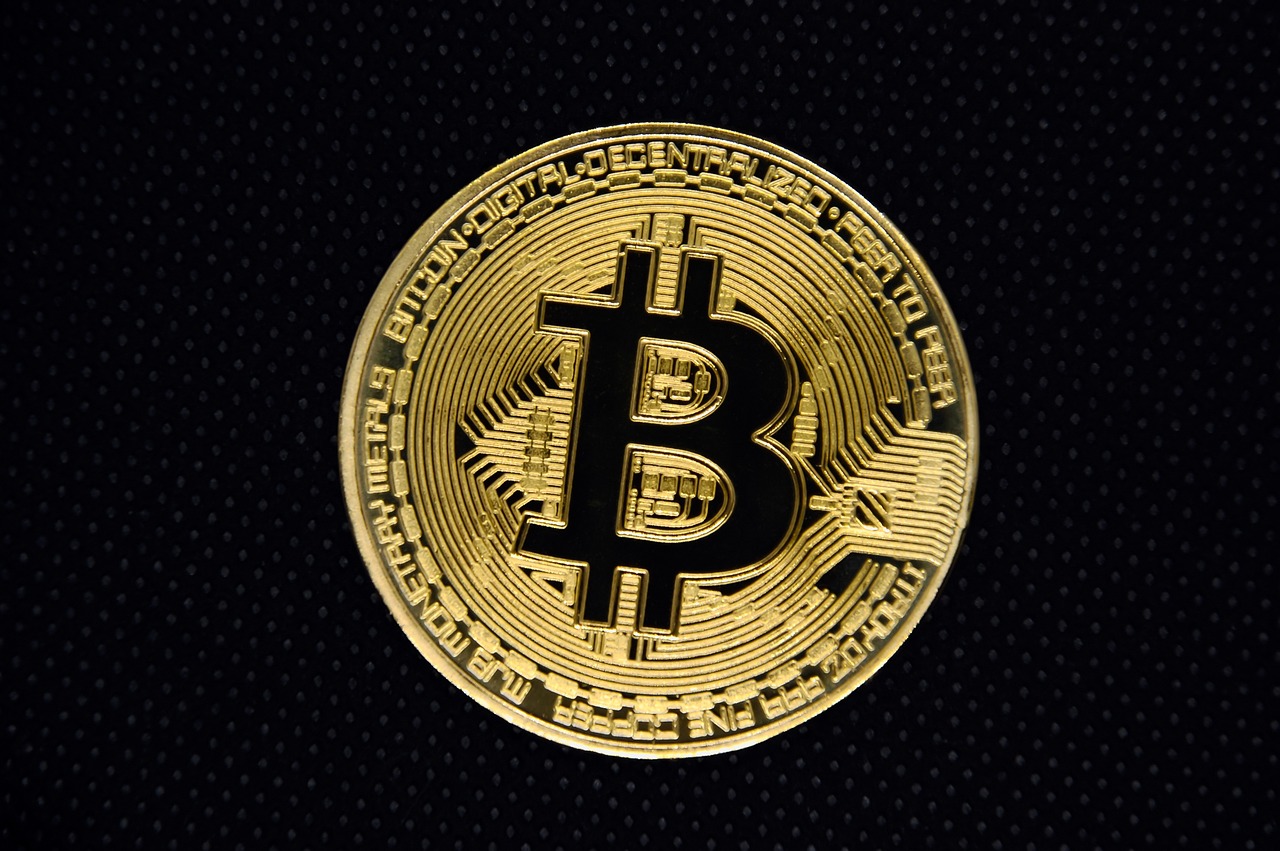Exploring the Use of Blockchain in Telecommunications
In recent years, the telecommunications industry has faced numerous challenges, from increasing demand for data to the constant threat of cyberattacks. Enter blockchain technology, a game-changer that promises to revolutionize how telecom companies operate. Imagine a world where every transaction is recorded in an unchangeable ledger, ensuring transparency and security. Sounds intriguing, right? This article delves into the transformative impact of blockchain technology on the telecommunications industry, examining its benefits, challenges, and potential future applications in enhancing security, efficiency, and transparency.
To fully appreciate the implications of blockchain in telecommunications, it's crucial to understand its core principles. At its heart, blockchain is a decentralized ledger that records transactions across multiple computers. This means that no single entity has control over the entire database, which enhances security and transparency. The key features of blockchain include:
- Decentralization: Unlike traditional databases controlled by a central authority, blockchain distributes data across a network, reducing the risk of single points of failure.
- Immutability: Once a transaction is recorded, it cannot be altered or deleted. This ensures that all records are trustworthy and tamper-proof.
- Transparency: All participants in the network can view the transaction history, fostering trust among users.
These principles are crucial for enhancing operational efficiency in telecommunications, where data integrity and security are paramount.
So, what exactly does blockchain bring to the table for telecom companies? The benefits are numerous and can lead to significant cost savings and improved customer experiences. Here are some of the standout advantages:
- Improved Security: With the rise of cyber threats, telecom companies need robust security measures. Blockchain's encryption and decentralized nature make it much harder for hackers to compromise sensitive data.
- Reduced Fraud: Fraud is a pervasive issue in telecommunications, costing companies millions. Blockchain can help mitigate this by providing transparent transaction records and smart contracts that automatically enforce agreed-upon terms.
- Streamlined Operations: By automating processes and reducing the need for intermediaries, blockchain can significantly enhance operational efficiency.
These benefits not only enhance operational efficiency but also create a more secure and trustworthy environment for customers.
One of the most significant advantages of blockchain is its ability to enhance security. In an age where data breaches are increasingly common, telecom companies must prioritize the protection of sensitive information. Through the use of encryption and decentralization, blockchain can safeguard telecommunications networks from cyber threats. Each transaction is encrypted, and because the data is spread across a network rather than stored in a single location, the risk of a successful attack is greatly diminished.
Fraud is a major concern in telecommunications, with schemes ranging from SIM card swapping to subscription fraud. Blockchain can play a pivotal role in mitigating these issues. By utilizing transparent transaction records, telecom companies can track every interaction and ensure that all parties adhere to agreed-upon terms. Smart contracts can automate processes, reducing the chances of human error and fraud. Imagine a world where every transaction is verified and recorded in real-time—this is the potential of blockchain.
Maintaining data integrity and privacy is vital for telecom operators. With blockchain's immutable ledger, customer data can remain secure and tamper-proof. This means that once information is recorded, it cannot be altered or deleted without consensus from the network. This feature not only protects sensitive data but also builds trust with customers, who can feel confident that their information is safe and secure.
While blockchain presents many opportunities, there are also challenges to its implementation in telecommunications. Scalability remains a significant hurdle; as the number of transactions increases, maintaining speed and efficiency can be difficult. Additionally, regulatory concerns can complicate the adoption of blockchain technologies. The need for industry-wide standards is essential to ensure interoperability and security across different networks.
Real-world examples provide insight into how blockchain is being used in telecommunications. Companies are already leveraging this technology to streamline operations, enhance security, and improve customer experiences. Case studies highlight successful implementations and the tangible benefits achieved.
Major telecom players are stepping up to the plate, embracing blockchain technology to stay competitive. Initiatives range from improving fraud detection systems to enhancing customer service through blockchain-based identity verification. The outcomes have been promising, showcasing the potential for significant operational improvements.
In addition to established companies, several startups are making waves in the blockchain telecom space. These emerging players are driving innovation and disrupting traditional business models. By leveraging blockchain, they are creating new solutions that address long-standing issues within the industry, such as billing discrepancies and customer verification processes.
Looking ahead, the future trajectory of blockchain technology in the telecom industry appears bright. As trends evolve and technology advances, we can expect to see even more innovative applications. The long-term impact on the sector’s landscape could be profound, transforming how telecom companies operate and interact with their customers.
Q: What is blockchain technology?
A: Blockchain is a decentralized digital ledger that records transactions across multiple computers, ensuring security and transparency.
Q: How does blockchain enhance security in telecommunications?
A: Blockchain enhances security through encryption and decentralization, making it difficult for hackers to compromise sensitive data.
Q: What are the challenges of implementing blockchain in telecom?
A: Challenges include scalability, regulatory concerns, and the need for industry-wide standards.

The Basics of Blockchain Technology
Understanding blockchain technology is essential for grasping its implications in telecommunications. At its core, blockchain is a decentralized, distributed ledger that records transactions across many computers so that the recorded transactions cannot be altered retroactively. This ensures a level of transparency and security that traditional centralized systems often lack. Imagine a digital notebook that everyone can see but no one can erase or change. This is the essence of blockchain.
One of the fundamental principles of blockchain is decentralization. In a traditional system, a single entity controls the database, making it vulnerable to attacks or manipulation. However, with blockchain, data is stored across a network of nodes, meaning that no single entity has control over the entire database. This decentralization enhances security and reduces the risk of a single point of failure. Think of it like a team of players in a game; if one player gets knocked out, the game continues because there are many others to keep it going.
Another critical aspect of blockchain is immutability. Once a transaction is recorded on the blockchain, it cannot be altered or deleted. This feature is particularly important for the telecommunications industry, where maintaining accurate records is crucial for customer trust and regulatory compliance. For instance, if a telecom company records a transaction related to a customer’s billing, that record is permanent. It’s like writing in ink instead of pencil—there’s no going back to erase mistakes.
Lastly, blockchain promotes transparency. Every transaction on the blockchain is visible to all participants in the network, which fosters a sense of trust. In the telecom industry, where fraud and disputes can arise, having a transparent system can significantly reduce misunderstandings. Imagine a group project where everyone can see each member's contributions; it minimizes conflicts and builds trust among team members.
In summary, the basics of blockchain technology revolve around three core principles: decentralization, immutability, and transparency. These principles not only enhance operational efficiency but also pave the way for innovative applications in the telecommunications sector. As we dive deeper into the benefits and challenges of implementing blockchain in telecom, it's essential to keep these foundational concepts in mind.

Benefits of Blockchain in Telecommunications
Blockchain technology is reshaping the telecommunications landscape in remarkable ways. Imagine a world where your data is not only secure but also seamlessly accessible across various platforms without the fear of fraud or data breaches. This is the promise that blockchain holds for telecom companies. By integrating blockchain into their operations, these companies can unlock a plethora of benefits that enhance their service delivery and customer satisfaction.
One of the most compelling advantages of blockchain in telecommunications is its ability to improve security. In an age where cyber threats loom large, the decentralized nature of blockchain ensures that sensitive customer data is encrypted and stored across multiple nodes. This means that there’s no single point of failure, making it incredibly difficult for hackers to gain access to valuable information. The use of cryptographic techniques further fortifies this security, providing an extra layer of protection that traditional systems simply can’t match.
Moreover, blockchain can significantly reduce fraud in the telecommunications sector. Fraudulent activities such as SIM card swapping and subscription fraud have long plagued the industry, leading to substantial financial losses. With blockchain, every transaction is recorded on a transparent and immutable ledger, making it easy to trace and verify actions. This level of transparency not only deters fraudulent behavior but also builds trust among consumers. When customers know that their transactions are securely recorded and can’t be altered, their confidence in the service provider increases.
| Benefit | Description |
|---|---|
| Enhanced Security | Decentralized data storage and encryption protect against cyber threats. |
| Fraud Prevention | Immutable transaction records deter fraudulent activities. |
| Operational Efficiency | Streamlined processes reduce costs and improve service delivery. |
In addition to security and fraud prevention, blockchain also contributes to operational efficiency. By automating processes through smart contracts, telecom companies can eliminate manual interventions that often lead to delays and errors. For example, billing disputes can be resolved quickly and fairly using automated contracts that execute based on predefined conditions. This not only speeds up operations but also minimizes costs associated with human error and administrative overhead.
Furthermore, the integration of blockchain can enhance customer experiences. Imagine a scenario where customers can easily verify their data usage, billing history, and service agreements without the hassle of navigating complex systems. With blockchain, this level of transparency becomes a reality. Customers can access their information in real-time, fostering a sense of empowerment and trust in their service providers.
Lastly, the potential for interoperability between different telecom networks is another significant benefit of blockchain technology. As the world becomes more interconnected, the ability for various networks to communicate and share data seamlessly is crucial. Blockchain enables this by providing a common framework that can facilitate transactions across different platforms, thereby enhancing collaboration and efficiency in the telecommunications ecosystem.
In summary, the benefits of blockchain in telecommunications are not just theoretical; they are practical solutions to real-world challenges. From enhanced security and fraud prevention to improved operational efficiency and customer satisfaction, blockchain is poised to revolutionize the way telecom companies operate. As the industry continues to evolve, embracing this technology will be key to staying ahead of the competition and meeting the demands of a tech-savvy consumer base.
- What is blockchain technology? Blockchain is a decentralized digital ledger that records transactions across many computers securely and transparently.
- How does blockchain improve security in telecommunications? By decentralizing data storage and using encryption, blockchain makes it difficult for unauthorized parties to access sensitive information.
- Can blockchain help reduce fraud in telecom? Yes, blockchain's transparent and immutable records deter fraudulent activities and enhance trust between customers and service providers.
- What are smart contracts? Smart contracts are self-executing contracts with the terms of the agreement directly written into code, automating processes and reducing the need for intermediaries.
- What is the future of blockchain in telecommunications? The future looks promising, with potential advancements in interoperability, customer experience, and operational efficiency driving further adoption of blockchain technology.

Enhanced Security Features
In today's digital landscape, where cyber threats lurk around every corner, the telecommunications industry faces an uphill battle to safeguard sensitive data. This is where blockchain technology steps in like a knight in shining armor. By leveraging its core principles of decentralization and encryption, blockchain offers a robust framework that can significantly enhance security across telecom networks. Imagine a world where fraudsters are thwarted at every turn and customer data remains as secure as a vault; that’s the promise of blockchain.
At its heart, blockchain operates on a distributed ledger system, which means that no single entity has control over the entire network. This decentralization makes it incredibly difficult for hackers to manipulate or corrupt data. Instead of a central database that can be easily targeted, information is spread across a network of computers. Each transaction is recorded in a block and linked to the previous one, creating a chain of data that is both immutable and transparent. If someone tries to alter a record, the entire chain would be affected, making such tampering readily apparent.
Moreover, blockchain employs advanced encryption techniques to protect data. Each transaction is encrypted and requires a unique key for access. This means that even if a hacker were to intercept the data, they would not be able to decipher it without the corresponding key. In essence, blockchain acts as a digital fortress, ensuring that only authorized parties can access sensitive information.
To illustrate the impact of these enhanced security features, let’s consider a few key benefits:
- Real-time Monitoring: Blockchain enables real-time tracking of transactions, which allows telecom companies to monitor activities and detect anomalies instantly.
- Reduced Data Breaches: With data stored across a decentralized network, the risk of massive data breaches is significantly minimized.
- Smart Contracts: These self-executing contracts ensure that terms are met before any data is shared, adding an extra layer of security.
In conclusion, the enhanced security features of blockchain not only protect telecom networks from external threats but also build trust with customers. As telecom companies continue to adopt this technology, we can expect a significant reduction in fraud and an increase in the overall integrity of data. The future of telecommunications may very well hinge on how effectively the industry can harness the power of blockchain to create a secure, transparent, and efficient environment.

Fraud Prevention
Fraud remains a significant challenge in the telecommunications industry, costing businesses billions of dollars each year. The traditional methods of combating fraud often fall short, primarily due to their reliance on centralized systems that can be manipulated or compromised. Here’s where blockchain technology steps in as a game-changer. By utilizing a decentralized network, blockchain provides a transparent and immutable record of transactions that can drastically reduce the risk of fraud.
Imagine a world where every transaction is recorded in a digital ledger that cannot be altered or erased. This is precisely what blockchain offers, ensuring that all parties involved in a transaction have access to the same information. This transparency fosters trust among stakeholders, as they can independently verify the integrity of the data. When it comes to telecommunications, this means that any service provided, whether it’s a call, text, or data usage, can be traced back to its origin, making it nearly impossible for fraudulent activities to go unnoticed.
Moreover, the implementation of smart contracts within blockchain technology further enhances fraud prevention. Smart contracts are self-executing contracts with the terms of the agreement directly written into code. They automatically enforce and execute the terms once predetermined conditions are met. For instance, if a telecom company offers a promotional plan based on usage, a smart contract can automatically adjust charges based on actual usage, eliminating the chances of billing errors or manipulation. This not only protects the company from fraud but also ensures fair pricing for customers.
To illustrate the impact of blockchain on fraud prevention in telecommunications, consider the following table:
| Traditional Methods | Blockchain Solutions |
|---|---|
| Centralized databases prone to hacks | Decentralized ledgers that are nearly impossible to alter |
| Manual checks for transactions | Automated verification through smart contracts |
| Limited transparency among parties | Full visibility for all stakeholders involved |
In conclusion, the integration of blockchain technology in telecommunications not only enhances operational efficiency but also provides robust mechanisms for fraud prevention. By leveraging transparency, decentralization, and automation, telecom companies can safeguard their operations against fraudulent activities, ultimately leading to improved customer trust and satisfaction. It’s an exciting time for the industry as it embraces innovative solutions to combat age-old challenges.
- What is blockchain technology?
Blockchain is a decentralized digital ledger that records transactions across many computers in a way that the registered transactions cannot be altered retroactively.
- How does blockchain prevent fraud?
By providing a transparent and immutable record of transactions, blockchain makes it difficult for fraudulent activities to go unnoticed.
- What are smart contracts?
Smart contracts are self-executing contracts with the terms of the agreement directly written into code, enabling automatic enforcement of agreements.
- Can blockchain be implemented in existing telecom systems?
Yes, many telecom companies are exploring the integration of blockchain into their existing systems to enhance security and efficiency.

Data Integrity and Privacy
In today's digital age, where data breaches and privacy violations seem to make headlines almost daily, maintaining data integrity and privacy has become paramount for telecommunications operators. Imagine your personal information being leaked or manipulated; it’s a nightmare scenario that no one wants to experience. Fortunately, blockchain technology offers a robust solution to this pressing issue.
At its core, blockchain operates on an immutable ledger, meaning that once data is recorded, it cannot be altered or deleted. This characteristic is crucial for ensuring that customer data remains secure and tamper-proof. For telecom companies, this means that sensitive information, such as call records and billing details, is safeguarded against unauthorized access and modifications. The decentralized nature of blockchain also means that no single entity has control over the entire database, which significantly reduces the risk of data breaches.
Moreover, blockchain employs advanced cryptographic techniques to encrypt data, ensuring that even if someone gains access to the network, the information remains unreadable without the appropriate keys. This level of security is akin to having a vault that not only locks your valuables away but also requires a unique combination to access them. With such measures in place, customers can have peace of mind knowing that their personal information is protected from cyber threats.
To illustrate the impact of blockchain on data integrity and privacy, consider the following table that summarizes its key advantages:
| Advantage | Description |
|---|---|
| Immutable Records | Once data is entered into the blockchain, it cannot be altered or deleted, ensuring accuracy. |
| Decentralization | No single entity controls the database, reducing vulnerability to attacks. |
| Enhanced Encryption | Data is encrypted, making it unreadable without the correct keys, protecting it from unauthorized access. |
Additionally, smart contracts can be utilized within blockchain networks to govern how data is accessed and shared. These self-executing contracts automatically enforce the terms agreed upon by parties involved, ensuring that data access is strictly controlled. For instance, a telecom operator might use a smart contract to allow a third-party service provider to access specific customer data under predefined conditions, thus maintaining privacy while still enabling essential services.
In summary, the integration of blockchain technology in telecommunications not only enhances data integrity and privacy but also fosters trust between service providers and customers. As we move forward into an increasingly interconnected world, the importance of secure and reliable data management cannot be overstated. By adopting blockchain, telecom companies can transform the way they handle sensitive information, ensuring that customer trust remains intact.
- What is blockchain technology?
Blockchain is a decentralized digital ledger that records transactions across many computers in a way that the registered transactions cannot be altered retroactively. - How does blockchain enhance data privacy?
Blockchain enhances data privacy through its immutable nature and advanced encryption techniques, ensuring that sensitive information remains secure and tamper-proof. - Can blockchain prevent fraud in telecommunications?
Yes, blockchain can prevent fraud by providing transparent transaction records and enforcing agreements through smart contracts. - What are the challenges of implementing blockchain in telecom?
Challenges include scalability, regulatory concerns, and the need for industry-wide standards.

Challenges of Implementing Blockchain
While the potential of blockchain technology in telecommunications is vast, the journey to widespread adoption is not without its hurdles. Understanding these challenges is crucial for telecom companies considering this transformative technology. One of the most pressing issues is scalability. As the number of transactions increases, the ability of blockchain networks to process these transactions efficiently can become a bottleneck. For instance, traditional blockchain networks like Bitcoin can handle only a limited number of transactions per second, which is significantly lower than what telecom operations require. This discrepancy raises concerns about whether blockchain can effectively support the high volume of data and transactions typical in telecommunications.
Another significant challenge revolves around regulatory concerns. The telecommunications industry is heavily regulated, and integrating blockchain technology could complicate compliance with existing laws and regulations. Different countries have varying regulations regarding data privacy, security, and financial transactions, creating a complex landscape for telecom operators. Companies must navigate these regulations carefully to avoid legal pitfalls. The lack of a unified regulatory framework for blockchain technology further complicates this issue, as telecom companies may find themselves in a gray area where the rules are unclear.
Moreover, the need for industry-wide standards poses a challenge. Blockchain technology is still relatively new, and as such, there is no consensus on best practices or standards for implementation. This lack of standardization can lead to interoperability issues between different systems and networks, making it difficult for telecom companies to collaborate effectively. Without established standards, companies may face significant integration challenges, hindering their ability to reap the full benefits of blockchain.
Additionally, the initial investment costs for implementing blockchain can be daunting. Setting up a blockchain infrastructure requires significant financial resources, not only for the technology itself but also for the necessary training and development of staff. Many telecom companies may be hesitant to allocate these resources, especially when the return on investment is not immediately clear. This reluctance can slow down the adoption process, preventing companies from capitalizing on the advantages that blockchain offers.
Finally, there is the challenge of cultural resistance. Many organizations have established ways of operating, and introducing a new technology like blockchain can meet with skepticism from employees and management alike. Change is often met with resistance, particularly in industries that have relied on traditional methods for years. Telecom companies must foster a culture of innovation and adaptability to overcome this barrier, encouraging stakeholders to embrace the potential of blockchain.
In summary, while blockchain presents exciting opportunities for the telecommunications industry, its implementation is fraught with challenges. Addressing issues such as scalability, regulatory compliance, standardization, initial costs, and cultural resistance will be critical for telecom companies looking to harness the transformative power of this technology.
- What are the main challenges of implementing blockchain in telecommunications?
Key challenges include scalability, regulatory compliance, lack of industry standards, initial investment costs, and cultural resistance within organizations. - How can telecom companies overcome these challenges?
Telecom companies can invest in research, collaborate with regulatory bodies, and foster a culture of innovation to facilitate the adoption of blockchain technology. - Is blockchain technology suitable for all telecom operations?
While blockchain can enhance many aspects of telecom operations, its suitability depends on specific use cases and the readiness of the organization to implement it.

Case Studies of Blockchain in Telecom
Real-world applications of blockchain technology in the telecommunications sector are not just theoretical; they are reshaping the industry in profound ways. Numerous telecom companies have started to implement blockchain solutions, and the results are nothing short of revolutionary. Let's dive into some compelling case studies that showcase how blockchain is enhancing operations, improving customer experiences, and driving innovation.
One of the notable examples is AT&T, which has been experimenting with blockchain to streamline its supply chain processes. By using blockchain technology, AT&T aims to create a transparent and tamper-proof record of transactions and inventory management. This approach not only reduces operational inefficiencies but also mitigates the risk of fraud. The company reported significant reductions in costs associated with supply chain discrepancies, proving that blockchain can indeed enhance operational efficiency.
Another compelling case is that of Vodafone, which has implemented a blockchain-based platform to facilitate cross-border payments. This platform allows for real-time transactions between different countries, eliminating the lengthy processes associated with traditional banking methods. By leveraging blockchain, Vodafone has been able to enhance the speed and security of its international payments, providing a better experience for its customers. The company has noted a marked increase in customer satisfaction as a result of this initiative.
Furthermore, Deutsche Telekom is making strides in the realm of blockchain by exploring its application in identity management. The company has developed a blockchain-based solution that allows users to control their personal data securely. This not only empowers customers by giving them ownership of their data but also enhances privacy and security. In a world where data breaches are becoming increasingly common, such innovations are crucial for maintaining customer trust.
To illustrate the impact of these blockchain implementations, let’s take a look at a summary of key initiatives from leading telecom companies:
| Company | Blockchain Application | Outcome |
|---|---|---|
| AT&T | Supply Chain Management | Reduced costs and fraud risk |
| Vodafone | Cross-Border Payments | Faster transactions and increased customer satisfaction |
| Deutsche Telekom | Identity Management | Enhanced data privacy and customer trust |
Moreover, it’s not just the giants of the industry that are making waves; innovative startups are also entering the blockchain telecom space. For instance, Filament is a startup that is leveraging blockchain technology to create secure, decentralized communication networks. Their approach is designed to provide enhanced security for IoT devices, addressing the growing concerns over cybersecurity in telecommunications. By focusing on decentralization, Filament is paving the way for a new era of secure communications.
In conclusion, the case studies from companies like AT&T, Vodafone, and Deutsche Telekom illustrate the transformative potential of blockchain in telecommunications. As these organizations continue to explore and implement blockchain solutions, we can expect a ripple effect throughout the industry, leading to greater efficiency, security, and customer satisfaction. The future is bright for blockchain in telecom, and the ongoing innovations from both established players and startups will undoubtedly shape the landscape for years to come.
- What is blockchain technology? Blockchain is a decentralized digital ledger that records transactions across many computers securely, ensuring that the recorded transactions cannot be altered retroactively.
- How does blockchain enhance security in telecommunications? By utilizing encryption and decentralization, blockchain protects sensitive data from cyber threats, making it more secure than traditional centralized systems.
- What are the main challenges of implementing blockchain in telecom? Key challenges include scalability, regulatory compliance, and the need for industry-wide standards to ensure interoperability.
- Can small startups benefit from blockchain in telecom? Absolutely! Startups are driving innovation in the blockchain space, creating new solutions that challenge traditional business models and enhance service delivery.

Leading Telecom Companies Adopting Blockchain
As the telecommunications industry evolves, several major players are stepping up to the plate, embracing blockchain technology to enhance their operations and customer experiences. Companies like AT&T, Vodafone, and Telefonica are at the forefront of this revolution, leveraging the unique capabilities of blockchain to solve long-standing issues in the sector. These companies are not just adopting blockchain for the sake of innovation; they are implementing it to address specific challenges such as fraud, data security, and operational inefficiencies.
For instance, AT&T has been exploring the use of blockchain to secure its network operations and improve customer trust. By utilizing blockchain’s decentralized nature, they can provide a more transparent and secure environment for their users. This means that customers can track their transactions and services without fear of manipulation or fraud. Similarly, Vodafone has initiated projects that utilize blockchain to streamline international payments, reducing costs and speeding up transaction times, which is crucial for their global operations.
Moreover, Telefonica has been involved in various pilot projects aimed at enhancing user identity verification through blockchain technology. This not only helps in preventing fraud but also simplifies the onboarding process for new customers. By integrating blockchain, they can ensure that customer data is securely stored and easily accessible, thereby enhancing user experience.
In addition to these established giants, there are also partnerships forming between telecom companies and technology firms to further explore blockchain applications. For example, a collaboration between Deutsche Telekom and various blockchain startups has led to innovative solutions for managing mobile identities and securing IoT devices. This partnership highlights how traditional telecom companies are looking beyond their core services to integrate cutting-edge technology into their business models.
As we look at the landscape, it’s clear that these leading telecom companies are not just adopting blockchain; they are actively shaping its future in the industry. The benefits they are realizing, such as enhanced security, improved customer service, and reduced operational costs, are paving the way for broader adoption across the sector. It’s an exciting time in telecommunications, and as these companies continue to innovate, we can expect to see even more impactful applications of blockchain technology in the near future.
- What is blockchain technology? Blockchain is a decentralized digital ledger that records transactions across many computers so that the registered transactions cannot be altered retroactively.
- How does blockchain improve security in telecommunications? Blockchain enhances security by using encryption and decentralization, making it harder for unauthorized users to access sensitive data.
- Which telecom companies are using blockchain? Major telecom companies like AT&T, Vodafone, and Telefonica are adopting blockchain technology to improve operations and security.
- What are the challenges of implementing blockchain in telecom? Challenges include scalability, regulatory concerns, and the need for industry-wide standards.

Innovative Startups in Blockchain Telecom
The telecommunications industry is undergoing a seismic shift, primarily driven by the innovative solutions offered by startups leveraging blockchain technology. These agile companies are not just following the trend; they're setting the pace, challenging traditional telecom models, and introducing groundbreaking applications that promise to reshape the industry landscape. For instance, startups are focusing on areas like decentralized communication, identity verification, and data security, providing services that not only enhance user experience but also reduce operational costs.
One standout example is Helium, a startup that has created a decentralized wireless network using blockchain technology. Helium's unique approach allows individuals to deploy their own hotspots, contributing to a community-driven network that offers low-cost connectivity. This innovative model not only empowers users but also democratizes the telecom infrastructure, making it more accessible and less reliant on traditional providers. The implications of this are enormous, as it fosters a sense of community and shared ownership in the telecommunications space.
Another notable player is MobileCoin, which focuses on providing secure and private transactions for mobile users. In an era where data breaches and privacy concerns are rampant, MobileCoin's blockchain solution offers a way for users to transact securely without compromising their personal information. This is particularly appealing to younger consumers who prioritize privacy and security, thus driving a new wave of adoption in telecom services.
Moreover, startups like Chainlink are enhancing the functionality of smart contracts in telecommunications. By providing reliable data feeds and APIs, Chainlink is enabling telecom companies to automate processes and streamline operations. This not only enhances efficiency but also reduces the risk of errors associated with manual processing. The result is a more agile and responsive telecom ecosystem that can adapt quickly to changing market demands.
As these startups continue to innovate, they face challenges such as regulatory hurdles and the need for interoperability with existing systems. However, their resilience and creativity are paving the way for a more decentralized and efficient telecommunications landscape. With the ability to disrupt traditional business models, these startups are not just participants in the blockchain revolution; they are the driving force behind it.
- What is blockchain technology? Blockchain is a decentralized digital ledger that records transactions across multiple computers, ensuring that the information is secure, transparent, and immutable.
- How can blockchain improve telecommunications? Blockchain can enhance security, prevent fraud, and streamline operations, leading to cost savings and improved customer experiences.
- What are some challenges of implementing blockchain in telecom? Key challenges include scalability, regulatory concerns, and the need for industry-wide standards to ensure interoperability.
- Which startups are leading the way in blockchain telecom? Startups like Helium, MobileCoin, and Chainlink are at the forefront, developing innovative solutions that disrupt traditional telecom models.

The Future of Blockchain in Telecommunications
The future of blockchain technology in telecommunications is not just a passing trend; it's a revolution waiting to unfold. Imagine a world where telecom operations are not only faster but also far more secure and transparent. With the rapid pace of technological advancements, the integration of blockchain into telecom systems is poised to redefine how we connect and communicate. As we look ahead, several key trends and advancements are likely to shape this landscape.
First and foremost, we can expect a significant increase in the adoption of decentralized networks. These networks will allow telecom operators to reduce their reliance on centralized data centers, which are often vulnerable to attacks. By distributing data across multiple nodes, blockchain can enhance security and make it nearly impossible for hackers to compromise the entire system. This shift towards decentralization not only improves security but also enhances network resilience.
Moreover, the rise of 5G technology will create new opportunities for blockchain applications. With the increased bandwidth and lower latency that 5G offers, telecom companies can implement blockchain solutions that were previously impractical. For instance, real-time data sharing and processing will become more viable, paving the way for innovative services like smart cities and the Internet of Things (IoT). The synergy between 5G and blockchain could lead to a seamless flow of information, enabling smarter decision-making and improved customer experiences.
Another exciting prospect is the emergence of smart contracts in telecom billing and service agreements. These self-executing contracts can automate processes, ensuring that transactions are executed only when predefined conditions are met. This not only reduces the likelihood of disputes but also streamlines operations, leading to cost savings for telecom providers. Imagine a situation where your mobile data plan automatically adjusts based on your usage, with payments processed instantly and securely through blockchain technology. Sounds futuristic, right?
However, while the future looks promising, there are still hurdles to overcome. Regulatory challenges and the need for industry-wide standards are significant barriers that must be addressed. As telecom companies explore blockchain, they will need to collaborate with regulators to create frameworks that ensure compliance while fostering innovation. This collaboration will be crucial in building trust and facilitating the widespread adoption of blockchain solutions.
In addition, the issue of interoperability between different blockchain systems cannot be overlooked. For blockchain to be truly effective in telecommunications, various networks must be able to communicate with one another seamlessly. This will require the development of protocols and standards that enable different blockchain platforms to interact, much like how different telecom networks currently operate.
As we envision the future, it’s clear that blockchain will not only enhance the operational efficiency of telecom companies but also transform the entire industry landscape. With its potential to improve security, reduce fraud, and streamline processes, blockchain is set to become an integral part of the telecommunications ecosystem. The next few years will be crucial in determining how quickly and effectively this technology can be integrated into existing systems.
- What is blockchain technology? Blockchain is a decentralized digital ledger that records transactions across many computers securely and transparently.
- How can blockchain improve telecommunications? Blockchain can enhance security, reduce fraud, and streamline operations, leading to cost savings and better customer experiences.
- Are there any challenges to implementing blockchain in telecom? Yes, challenges include regulatory concerns, scalability issues, and the need for industry-wide standards.
- What role will smart contracts play in telecom? Smart contracts can automate billing and service agreements, reducing disputes and improving operational efficiency.
Frequently Asked Questions
- What is blockchain technology?
Blockchain technology is a decentralized digital ledger that records transactions across many computers in such a way that the registered transactions cannot be altered retroactively. This ensures high levels of security and transparency, making it particularly beneficial for industries like telecommunications.
- How does blockchain improve security in telecommunications?
Blockchain enhances security in telecommunications by using encryption and decentralization. This means that sensitive data is stored across a network rather than in a single location, significantly reducing the risk of cyber threats and unauthorized access.
- Can blockchain help prevent fraud in telecom?
Absolutely! Blockchain can mitigate fraud by providing transparent transaction records and utilizing smart contracts. These features ensure that all parties involved adhere to the agreed-upon terms, making fraudulent activities much harder to execute.
- What are the challenges of implementing blockchain in telecom?
While blockchain offers numerous advantages, its implementation in telecommunications faces challenges such as scalability, regulatory concerns, and the need for standardized protocols across the industry. Addressing these issues is crucial for widespread adoption.
- Are there real-world examples of blockchain in telecommunications?
Yes, there are several case studies showcasing successful implementations of blockchain in the telecom industry. Leading telecom companies and innovative startups have adopted this technology to improve operations, enhance security, and offer better services to customers.
- What does the future hold for blockchain in telecommunications?
The future of blockchain in telecommunications looks promising, with potential advancements in efficiency, security, and customer experience. As the technology evolves, we can expect to see more telecom companies integrating blockchain solutions into their operations.



















